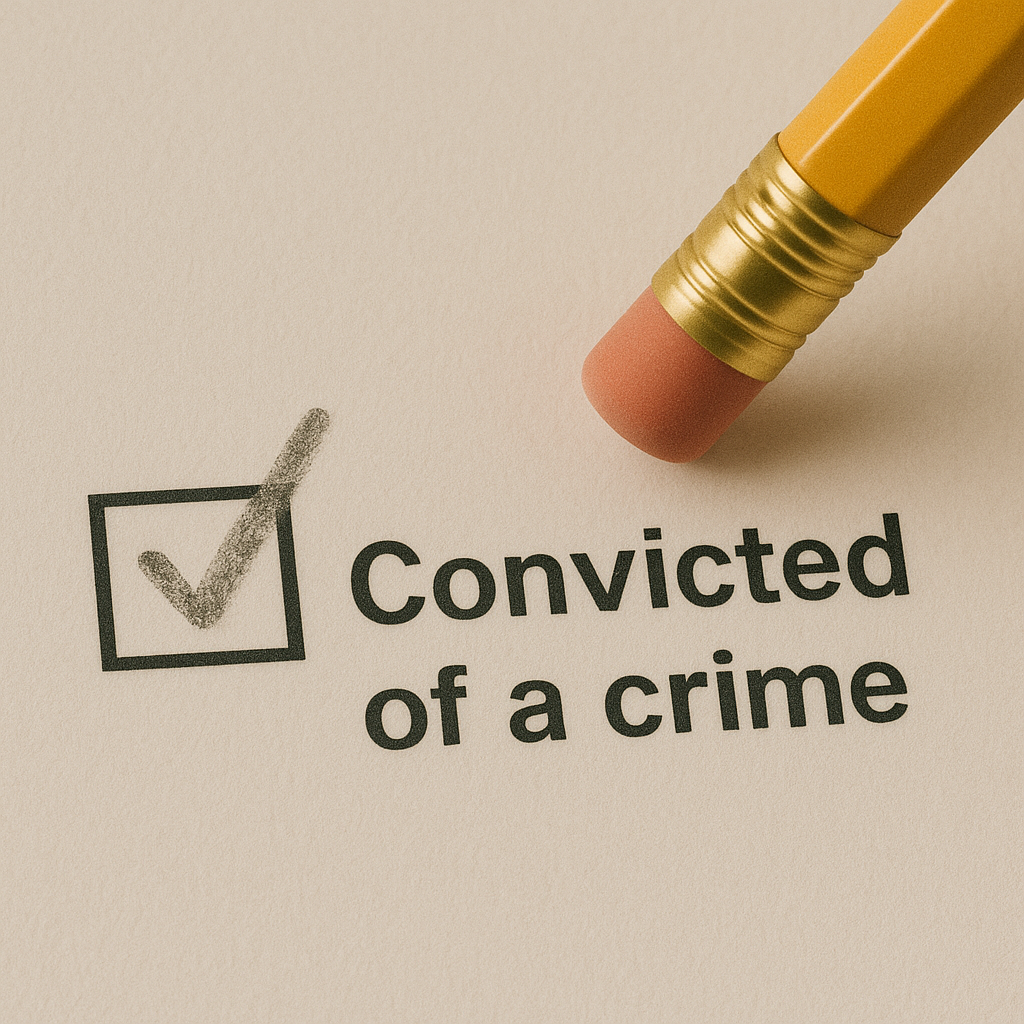Which Criminal Convictions Can Be Expunged in Maryland?
For a long time expungement (Removal from public court records) only applied to non-convictions with very few exceptions. However, over the last decade the Maryland legislature has slowly been expanding which convictions are eligible for expungement. If a specific conviction is eligible for expungement, it’s usually only after you have completed your sentence, including any parole, probation, or mandatory supervision. When you can expunge your convictions (waiting period) depends on the type of conviction.
Nuisance Crimes – Eligible After 3 Years
You may request expungement three years after your conviction or completion of your sentence (whichever is later) for certain “public nuisance” offenses under Md. Code, Criminal Procedure § 10-105(a)(9), such as:
- Urinating or defecating in public
- Panhandling or soliciting money
- Drinking alcohol in public
- Blocking passage in public areas or public transportation
- Sleeping in or on park structures (benches, doorways, etc.)
- Loitering or vagrancy
- Riding transit without paying the fare
- Certain transportation offenses (Md. Code, Transportation § 7-705)
Cannabis Possession with Intent to Distribute – Eligible After 3 Years
If you were convicted under Md. Code, Criminal Law § 5-602, you may request expungement three years after completing your sentence.
Certain Misdemeanors – Eligible After 5 Years
After five years, you may request expungement for certain misdemeanor convictions, including:
- Disorderly intoxication
- Possession of a controlled dangerous substance (CDS)
- Possession or use of drug paraphernalia
- Certain unauthorized CDS offenses by licensed providers
- Certain burglary, trespass, and property crimes
- Breaking and entering a motor vehicle
- General theft (Md. Code, Criminal Law § 7-104)
- Littering or illegal dumping
- Disturbing the peace or disorderly conduct
Assault & Battery – Eligible After 7 Years
Convictions for second-degree assault or common law battery can be expunged seven years after conviction or completion of your sentence.
Certain Burglary & Theft Offenses – Eligible After 10 Years
If you were convicted of first- or second-degree burglary, or certain theft offenses under the general theft provisions, you may request expungement ten years after conviction or sentence completion.
Domestically Related Crimes – Eligible After 15 Years
Convictions for domestically related crimes may be expunged fifteen years after conviction or sentence completion.
Why This Matters
An expungement can give you a fresh start, removing convictions from public records and improving your opportunities for employment, housing, and more. If you believe you may qualify, it’s important to review the exact waiting period and eligibility rules for your conviction.
An attorney can guide you through the process, file the necessary petitions, and help you present the strongest possible case for expungement.
Your request for expungement can be denied for many reasons, make sure you hire the Stubenberg Legal Group LLC to make sure it gets done right.
This article is not legal advice.




